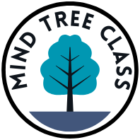Fine motor skills are the coordination of small muscles in the hands, wrists, feet, eyes, and toes to perform precise movements. These skills are vital for everyday activities like buttoning up a shirt, holding a spoon to eat or a pencil to write, tying shoelaces, cutting with scissors, and writing. What is more, adults use them so often that it is not easy to realize that most tasks require a skill set and the use of different muscles. Just have a look at this list!
In everyday life, fine motor skills help us:
- hold a pen and a toothbrush
- zip a jacket
- turn pages of a book or doorknobs
- put a plug into a socket
- dial a phone number
- open a lock with a key
- sew and stitch
- cut with scissors and a knife
- sort different objects
- button a shirt
- pouring drinks
- and many more!
In the Kindergarten classroom, the children build up their fine and gross motor skills through activities such as cutting with scissors, drawing, painting, sorting, sculpting with clay, building with blocks, and manipulating small objects. These activities help them develop the hand-eye coordination necessary for writing and other activities. You can read about sorting and classifying activities in this blog post. If you can read more about hands-on activities in the Kindergarten classroom, click here.
Kindergarten and fine motor skills
Building fine motor skills is vital for children’s developmental growth. Babies start using their hands at the age of six months to grab and shake toys. It is the beginning of a life-long learning process that never stops. Fine motor skills development helps children do better in everyday life, learn, play, and interact with peers. Well-developed fine motor skills show the child to be ready to learn new things. However, fine motor skills heavily depend on gross motor skills.
Fine motor skills and schooling
Thus, children who struggle to master fine motor skills will reflect a skill gap and learning difficulties in schooling. Kindergarten and preschools prepare children for school education. Moreover, experts realize that academic success depends on multiple skill sets and coordination. They call fine motor skills the first definition of school readiness. Studies show that students with strong motor skills have better reading achievements and math skills.
Indeed, if students have problems with motor skills, the early childhood stage is the best time to start early interventions and occupational therapy. There are a lot of games, task cards, worksheets, and activities to develop them fast and effectively.
Educators use printable worksheets for developing coordination.
Every day, teachers make children:
copy patterns
color images
trace lines, shapes, letters, and numbers
You can find these activities here. Coloring is a great and time-tested activity to develop all types of skills of a child. This Alphabet Coloring Book is excellent for learning the beginning sounds of the alphabet, coloring awesome kid-friendly pictures, and tracing the letters at the bottom of the page.
Besides, children, who can copy designs well at kindergarten entry, had a higher teacher-rated reading, writing, math, and spelling through the third grade.
The teacher’s role in fine motor development
In all honesty, the importance of teaching fine motor skills is enormous. Students from various backgrounds attend preschool classes. Teachers can identify and help develop the essential skills by participating in indoor and outdoor activities and games.
Another advantage of educators over parents is that they observe different children of the same age. Whereas, for parents, it is not the case. They only know their child as they spend most of the time with only their kid, and the child looks perfectly normal. For this reason, teachers compare the skill development rate with kids of the same age. That is why it is possible in preschools and kindergartens. Kindergarten teachers encounter several students daily, can skillfully identify students with poor skills, and help them overcome their struggles.
Benefits of kindergarten educators:
Have special education and skills
Can identify any motor skill problems faster
Know lots of indoor and outdoor games and activities
Use lots of toys, boards games, and other educational resources
See different kids in their classroom
Help kids build up skills faster
To sum up, early childhood skills development is vital for future academic performance, career success, and personal life.


